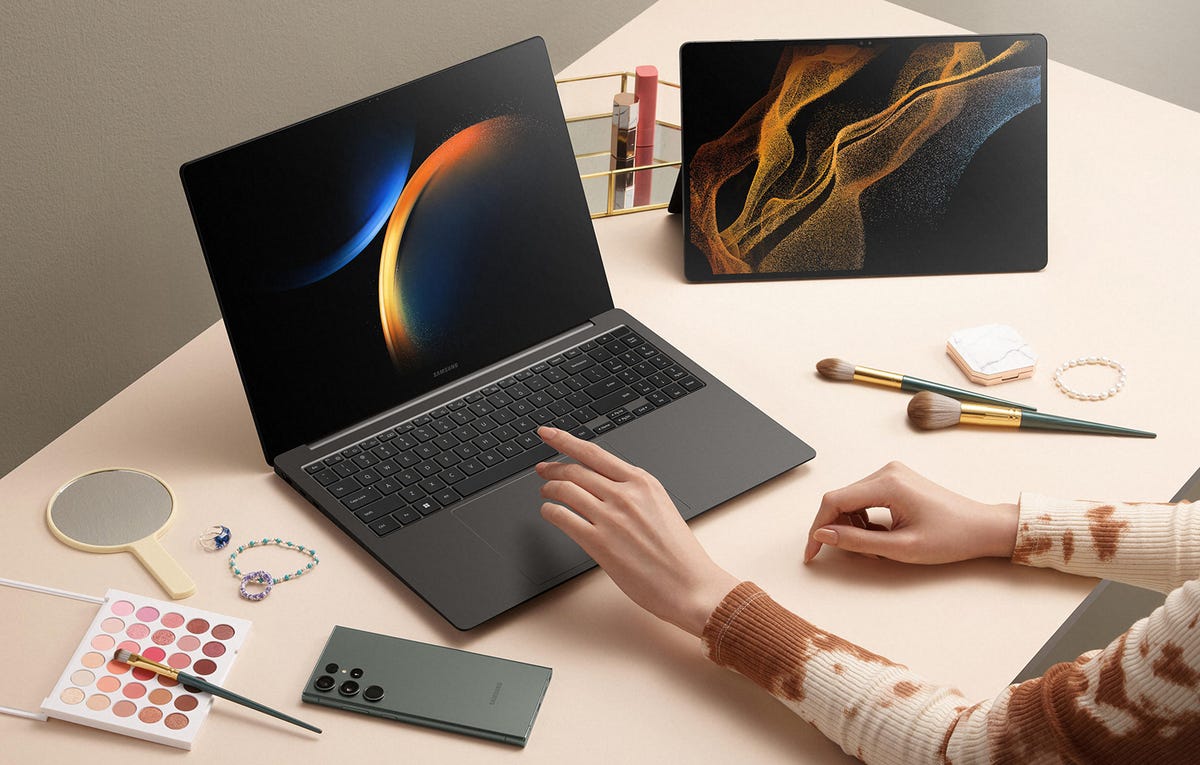The big dates that punctuate the annual tech calendar are very routine. After CES, the next date was unquestionably the 1er February, where Samsung held its Galaxy Unpacked event. And the media treatment is always the same: rumors and leaks, confirmation of the date, and the event itself. Subsequently will be published the reviews of the new devices and the reactions when they arrive in the hands of the users.
Still, in the past many users dreamed of quickly upgrading to the latest smartphone, tablet or laptop. But these days, several factors are dampening that enthusiasm. The main one is the recent global economic recession, which is leading to a drop in demand for new devices.
In 2022, global smartphone shipments fell 12% to 1.2 billion units, their lowest level in 10 years, according to Canalys. Although Samsung retained the top spot with 22% of the market, the company saw a sharp 17% decline in year-over-year shipments in the fourth quarter.
The sustainability argument
Despite this very bleak overall picture, Le Xuan Chiew, an analyst at Canalys, notes that “Samsung maintains its profitability objective by strengthening its high-end portfolio and creating a high-end niche segment via its Fold series”. This view is shared by Samsung’s Director of Mobile Experience Business, TM Roh. He told reporters at the Galaxy Unpacked event that demand for high-end models – the Galaxy S23 series and upcoming Fold devices – is expected to increase by 10% this year.
The global PC market also saw a decline of 16% in 2022, to 285.1 million units, and 29% in the fourth quarter, to 65.4 million units, again according to Canalys. Laptops are doing particularly badly, down 19% year-on-year and 30% in the fourth quarter. “As expected, the global PC market faces further headwinds in the fourth quarter to cap off a challenging 2022,” said Ishan Dutt, principal analyst at Canalys.
Of course, consumers and businesses may well start buying new devices again when economic weather improves, likely from late 2023 and into 2024. However, another factor is likely to have a lasting effect on the purchasing behavior: sustainability.
Recycled materials and OS support
Events like Galaxy Unpacked naturally tout the benefits of new designs, faster processors, smarter, higher-resolution cameras, and more. But buyers are also increasingly interested in maximizing the lifespan of their devices, for depreciation reasons, but also to dispose of end-of-life devices responsibly. On the other hand, many people hold on to their smartphone until accumulated damage, poor battery health, and lack of operating system or security updates force them to upgrade.
The Galaxy S23 Ultra features more recycled materials than its predecessor, and also uses Corning Gorilla Glass Victus 2 with 22% recycled glass. But above all, it will benefit from four generations of operating system updates and five years of security updates.
You might not want to shell out over $800 for a Galaxy S23 smartphone or over $1,350 for a Book 3 series laptop right now. But Samsung goes out of its way to reassure you by telling you that when you do it, it will also buy you a better environmental conscience. And with the certainty of being quiet on the operating system side.

Picture: Samsung.
Focus on the builder ecosystem
Another key message from manufacturers that have a large portfolio is the value of buying into its ecosystem. You might not want to buy a Galaxy Book 3 laptop right away, but when you do, there will be a whole range of other products and features that can improve your productivity, at work or at home. . Samsung calls this the “multi-device connected experience”.
For example, if you have installed Link to Windows on your Galaxy phone and Microsoft Phone Link on your Galaxy Book laptop, you can use the feature Recent Websites to transfer web browsing sessions (only on Samsung internet browser) from phone to PC, or use Instant Hotspot to access your phone’s internet connection from your laptop with one click.
Samsung Multi Control lets you control Galaxy tablets and phones (with the correct version of One UI installed) via the Book 3 laptop’s keyboard and touchpad, with copy/paste and drag/drop support. file, while Second Screen allows you to use a Galaxy Tab S7 or S8 tablet as a secondary display for your Book 3 laptop. And with Expert RAW installed on your Galaxy smartphone, you can automatically transfer RAW images taken on the smartphone to your laptop to edit them with Adobe Lightroom.
Samsung is far from alone in promoting its sustainability credentials and the added value of purchasing from its ecosystem of devices. And we’re going to see more such announcements from major manufacturers in the future. Just watch the next big event dedicated to a product launch to realize that.
Source: ZDNet.com
